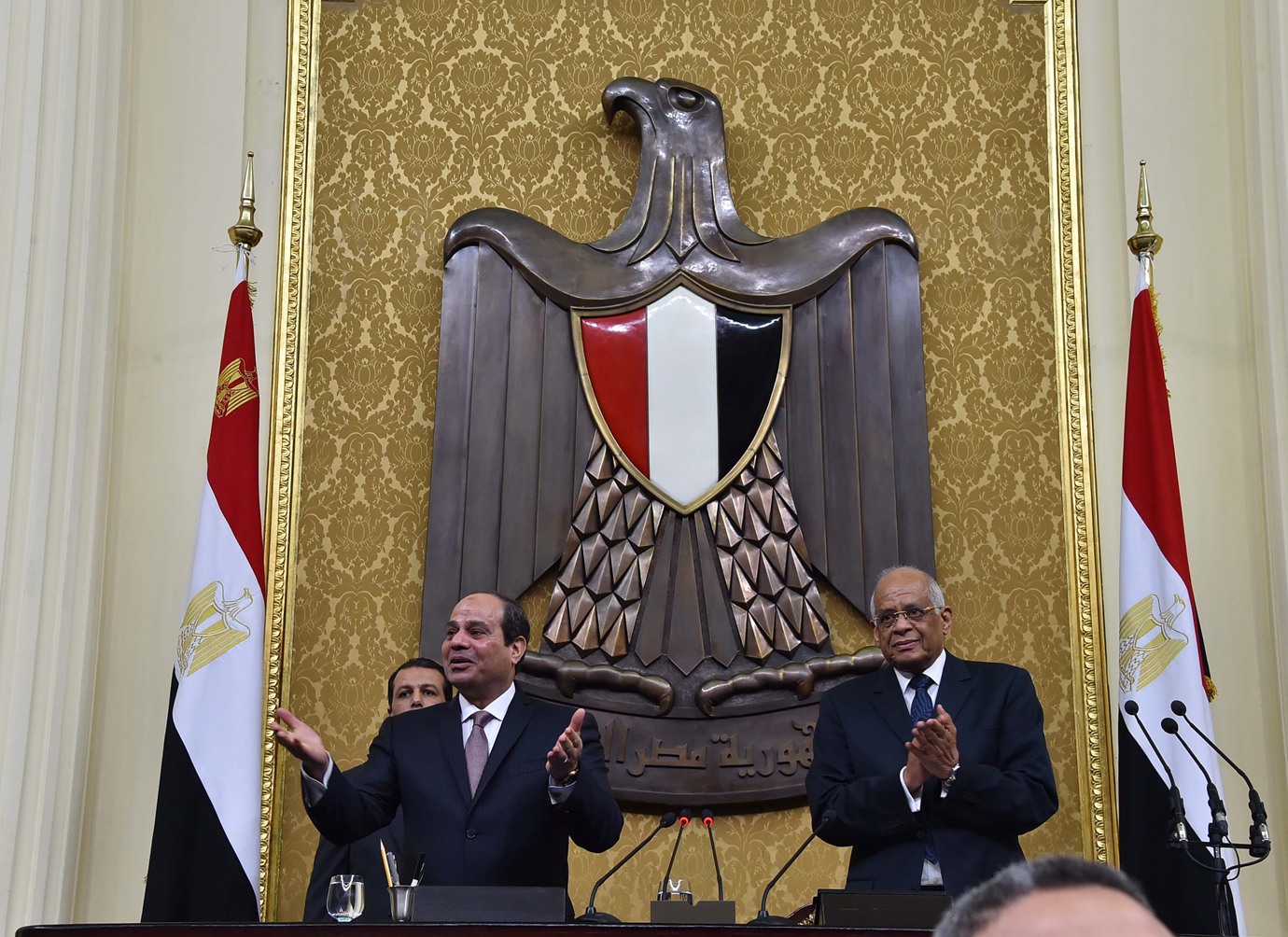Following the elections to select the leaders of the internal committees in Egypt’s House of representatives held on Saturday, the “Support Egypt” parliamentary coalition won the majority of the leading posts, according to state-owned Ahram Online.
The coalition, which is widely considered to be sympathetic to President Abdel Fattah al-Sisi, will head 14 of the as of yet announced 18 committees, thus consolidating its control over the newly-elected Egyptian parliament.
The Support Egypt MP winning the most votes for the respective committee he was running for was Osama Heikal, former information minister and the current chairman of the Egyptian Media Production City. Running for the leadership of the Media, Culture and Antiquities Committee, Heikal won 10 out of a total of 18 votes.
He said that his political bloc did not field candidates for all of parliament’s internal committees because they wanted to see a diverse mix of committee heads. “We fielded candidates in 16 committees only, allowing other political factions to compete and win posts,” said Heikal.
The committees that the Support Egypt coalition secured include transportation, industry, manpower, defense and national security, agriculture, housing, and Arab countries’ affairs.
A number of MPs have voiced criticism of the election process, saying that the Support Egypt bloc only wants to strengthen its hold on parliament rather than elect the most worthy and competent candidates to lead the internal committees.
Member of the Support Egypt coalition Osama Sharshar reportedly resigned from the political bloc in protest of biased voting, according to Daily News Egypt.
The Support Egypt coalition was founded in late 2015 by the late Sameh Seif El-Yazal and is now headed by Saad El-Gamal, who was a member of former president Hosni Mubarak’s now-defunct National Democratic Party.
Egypt’s current parliament was opened in January for the first time in three years. In 2012, the Muslim Brotherhood-dominated legislature was dissolved by the supreme constitutional court. The ruling by Egypt’s top court came less than a year after it was elected in what has been described as he country’s first democratic parliamentary elections.
While Mohamed Morsi, who was elected president the same year, tried to reinstate the parliament, the courts blocked his attempts in a move seen as solidifying control by the military over one Egypt’s key power centres.
Shortly thereafter, in July 2013, Morsi was ousted from the presidency by a popularly-backed military take-over prompting the rise of then-defense minister Sisi to dominate the Egyptian political scene.
Egypt’s parliament consists of 596 elected members, with around 40 percent affiliated with political parties and 60 percent are independents.







Comment (1)
[…] real power to oppose the laws he wants to implement. As the parliament is dominated by the loyalist Support Egypt coalition, the country’s legislative procedures have been under scrutiny for not upholding the […]